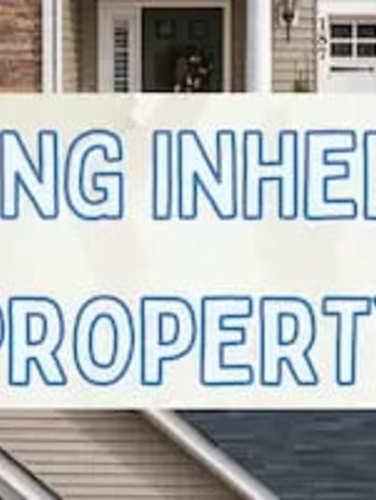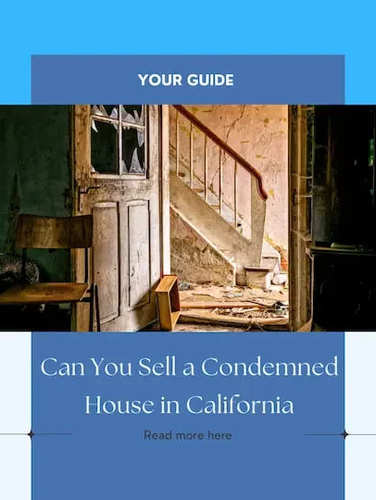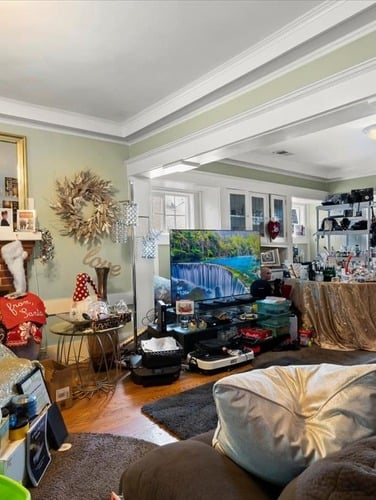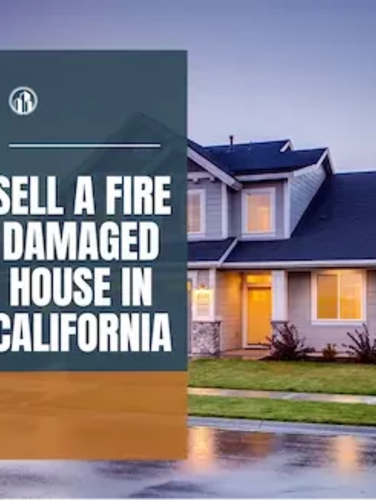Conversion in progress ...
Please wait while we generate your PDF
Sell A Fire Damaged House In California
Sell A Fire Damaged House In California
Selling a house with fire damage can be challenging, but with the right approach, you can still secure a profitable sale. The first step is to assess the extent of the damage and determine whether repairs are worth the investment. In many cases, selling the property as-is to a cash buyer is the fastest and most cost-effective solution. Cash buyers specialize in purchasing damaged homes without requiring extensive inspections or repairs, allowing you to sell quickly and avoid the hassle of costly renovations. To maximize your sale, gather all necessary documentation, including fire damage reports, insurance claims, and repair estimates, to provide transparency to potential buyers. Pricing the home competitively is crucial, as fire-damaged properties typically sell at a discount compared to fully restored homes. Marketing your home to real estate investors or companies that buy homes in any condition can attract the right buyers who see potential in the property. Whether you choose to repair or sell as-is, working with a knowledgeable real estate agent or cash home buyer can simplify the process and ensure a smooth transaction.
01
Step 1: Ensure Safety and Secure the Property
Step 1A: Contact Local Authorities
Notify the fire department if the structure is still unsafe.
Secure the property to prevent vandalism or injury (board windows, lock doors, etc.).
Step 1B: Obtain a Fire Incident Report
Get a copy from the local fire department for insurance and disclosure pur
02
Step 2: Contact Your Home Insurance Provider
Step 2A: File a Claim
Report the fire damage and document everything with photos and written details.
Step 2B: Get a Payout or Denial
Some insurance policies may cover partial or full damage, cleanup, or temporary housing.
Cash Buyer Advantage: You can still sell even if insurance won’t cover repairs — cash buyers purchase as-is.
03
Step 3: Assess the Damage
Hire a licensed contractor or fire restoration company to evaluate:
Structural damage
Smoke and water damage
Cost of full restoration
Cash Buyer Option: Skip costly repairs entirely — most cash buyers specialize in distressed or fire-damaged homes.
Other Options:
You can choose to repair the property before selling (costly and time-consuming).
Sell to a flipper or rehab investor through MLS or off-market channels.
04
Step 4: Understand Disclosure Requirements
In California, you’re legally required to disclose fire damage, even if it has been repaired.
Disclose:
When the fire occurred
What areas were damaged
Whether the damage was repaired and to what extent
Cash Buyer Benefit: Fewer complications with disclosures, as they buy fully informed and without contingencies.
05
Step 5: Decide How You Want to Sell
✅ Option 1: Sell to a Cash Buyer (Best for Fire-Damaged Homes)
No repairs, no clean-up, no agent commissions
Close in as little as 7 days
Sell as-is, with no inspections required
Great for avoiding holding costs and stress
🏡 Option 2: List on the MLS with a Real Estate Agent
May reach more buyers, but:
Requires disclosures, inspections, and possibly cleanup
Likely attracts only investor buyers
May take 60–90+ days to close
🛠️ Option 3: Repair Then Sell
You repair the home and sell for retail price
Highest potential value but involves:
Permits, contractors, insurance battles
Upfront costs and months of renovation
🧾 Option 4: Sell to an Investor Through FSBO
Post the home yourself on Zillow, Craigslist, or investor platforms
Requires negotiation skills and screening buyers
06
Step 6: Set a Realistic Price or Get a Cash Offer
If listing or FSBO, price the home based on its current condition, not what it was worth before the fire.
Get multiple cash offers from local investors who specialize in distressed homes (like Sell Quick California).
Pro tip: Cash buyers may still offer fair market value minus repair cost, and they’ll close fast.
07
Step 7: Open Escrow and Close the Sale
Cash Buyer:
Easy escrow process with little paperwork
No contingencies, lender delays, or repair demands
Close in 7–14 days or on your schedule
MLS or FSBO:
Buyers may require inspections, loan approval, and request repair credits
Can fall out of escrow if buyer financing fails
08
Step 8: Use the Proceeds and Address Taxes
If insurance paid you, and you also sold the property, consult a CPA about any tax implications or capital gains.
Consider reinvesting via a 1031 exchange if it was an investment property.
















